(Republishing due to wordpress seeming to have thrown away my original post).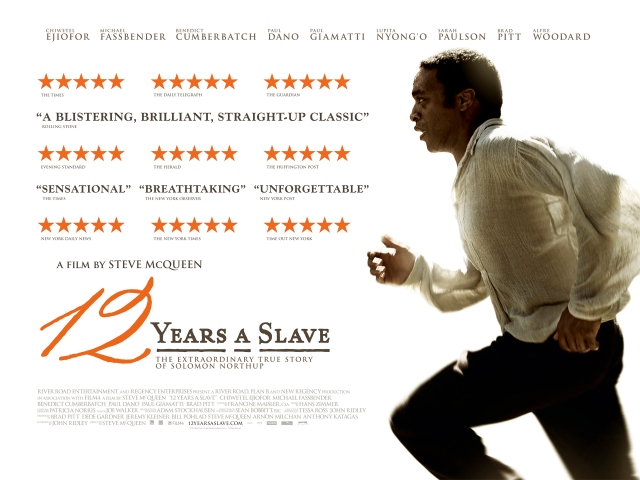
I love this time of year in the run up to the Oscars when the real power-house films come to the fore. 12 Years a Slave is a case in point: a hard film to watch, but ultimately a must see.
The film tells the true story of Solomon Northup living life as a gentleman in Saratoga, New York at a time when the divide between the Northern and Southern states on colour was never wider. Tricked and kidnapped, he is cruelly stripped of his fine clothes, his dignity and his freedom and shipped south to a life of servitude at the hands of a variety of ‘owners’ , some more Christian that others.
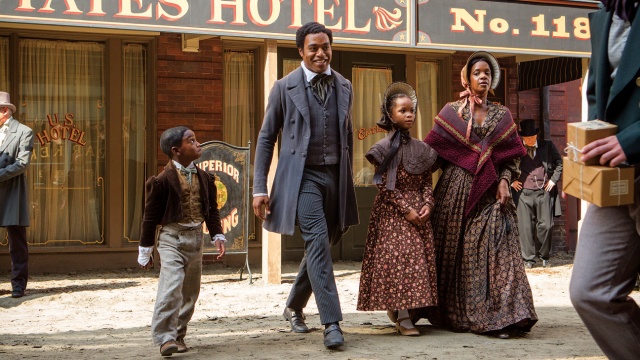
The film is beautifully shot (by DP of Photography Sean Bobbitt) with long lingering panoramas of bayous and vistas contrasting the beauty and quiet of the landscape with the ugliness and brutality of the plantations. In fact, this film is bound to feature strongly in all of the technical categories at the forthcoming awards: lighting, wardrobe, editing all magnificent. And the special effects used in one particularly uncomfortable scene are truly impressive: sometimes you don’t need to be in a galaxy far far away to appreciate the subtle arts of a special effect.
Londoner Steve McQueen directs with true flair. Some of the shots are long, langourous and without dialogue, letting the audience inside the head of the actor to the point where you want them to cut away because it is becoming too painful to carry on watching. True directorial power. He is certainly not afraid to continue to tackle controversial material head-on, given that this is his follow-on film from sex-addiction film “Shame”. (For female fans it is worth pointing out that there is one shot in particular – in which he wears loose fitting pantaloons – where Michael Fassbender reveals – ahem – the length to which he went in that earlier film).
In the acting department – as for American Hustle – this deserves an award for the ensemble cast who work together splendidly. The big names – Benedict Cumberbatch, Paul Giamatti and Brad Pitt – all perform admirably for the limited time they are on screen. Giamatti in particular (who impressed in his role as the driver in “Saving Mr Banks”) is particularly chilling as the inappropriately named Freeman, selling on the kidnapped slaves to new owners: a portrait of urbane callousness.
But it is the sparring between London-born star Chiwetel Ejiofor and Michael Fassbender, as the evil cotton plantation owner Edwin Epps that really make the acting sparks fly. It would be no surprise if both actors were Oscar nominated, and indeed a surprise if they were not. Both are outstanding. Interestingly Ejiofor made his film breakthrough in another slavery film, Steven Spielberg’s Amistad, before going onto greater things (sarcasm) in Richard Curtis’s Love Actually.
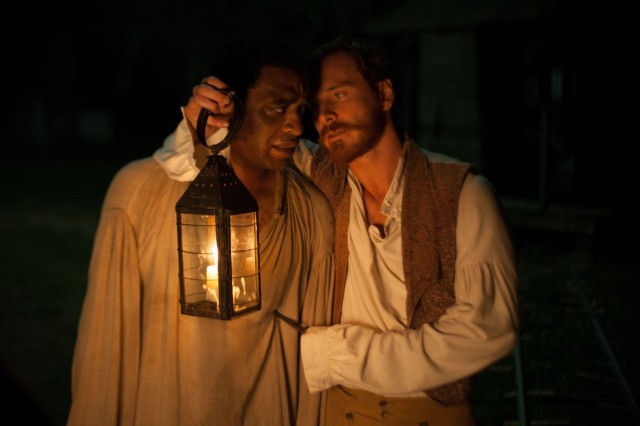
Also notable is Lupito N’yongo who – astonishingly – makes her acting debut in the role of Patsey, the beautiful but abused love interest of Fassbender’s Epps. Finally, acting herself firmly into the category of “most despised female of the year so far” is Sarah Paulson as Epps wife, vindictively taking her marital ire out on Patsey. In Django Unchained I was critical of the way in which the plantation owner’s wife Mrs Candie – who seemed to be, if not good, not fundamentally evil either – got cruelly, albeit comically, dispatched at the end of the film. No such reservations if Django wants to pay Mistress Epps a visit!
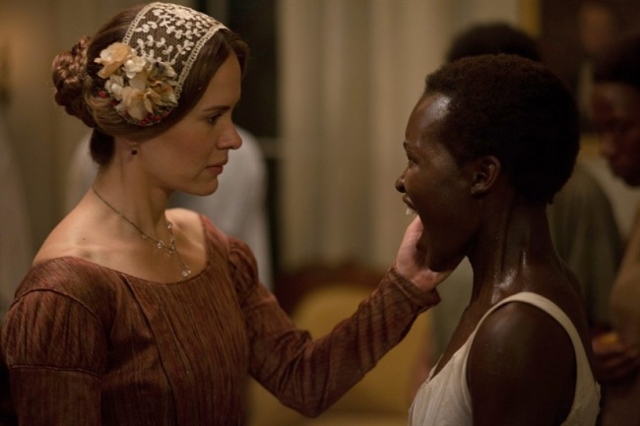
My one and only criticism of this amazing film is the music score. I thought that a recurring theme sounded startlingly similar to a theme from “Inception” and I found myself thinking “whoever wrote this must be a fan of Hans Zimmer”. Then as the credits rolled, I saw the score was written by…. Hans Zimmer. A quick google of the two films’ titles reveals that my observation hasn’t gone unnoticed by others. A bit of an irritating distraction for me.
Many years ago Spielberg’s “Colour Purple” made a big impression, both with audiences and at the awards. This wonderful albeit gruelling film deserves to do likewise. It is a sad and astonishing fact that more than 150 years after this film was set, a minority of our ‘civilised’ society still judge a person by the colour of their skin. As such, and in the same way as Schindler’s List was used as an educational tool, this film could and should be shown in schools as a weapon in the fight against racism.
For the second time in a week, I will again issue the polite request “Go see it”.
Fad Rating: FFFFf.
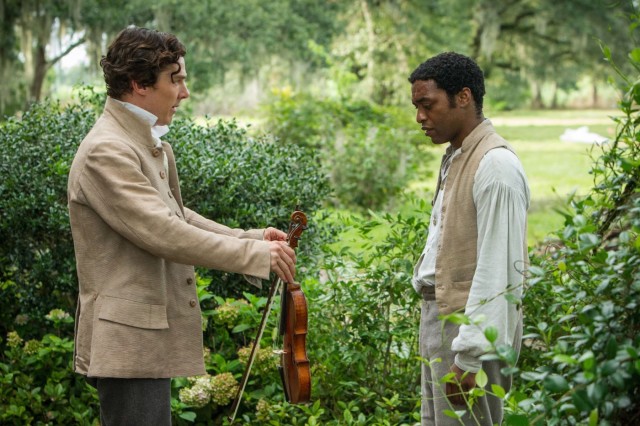
I don’t think that was Mrs. Candie’s wife, it was his sister. I can understand the confusion; Tarantino did imply an incestuous relationship between the two, I believe.
A pity that you haven’t reviewed Django Unchained (my favourite film of all time).
Thanks…I clearly missed that… though I think you mean “Mr Epp’s wife” (as you are getting your Django’s crossed too!) I’m sure I DID review Django Unchained (hence my comment in this review) but I can’t find it in the archive any more…. I was having trouble with WordPress losing posts at the time, so perhaps that one has gone into the Sarlak’s pit of WordPress never to return…
[…] Caesar”, “The Grand Budapest Hotel”) ably supported by her assistant Mordo (Chiwetel Ejiofor, “12 Years a Slave”) and librarian Wong (Benedict Wong, “The Martian”). So far so “Batman […]